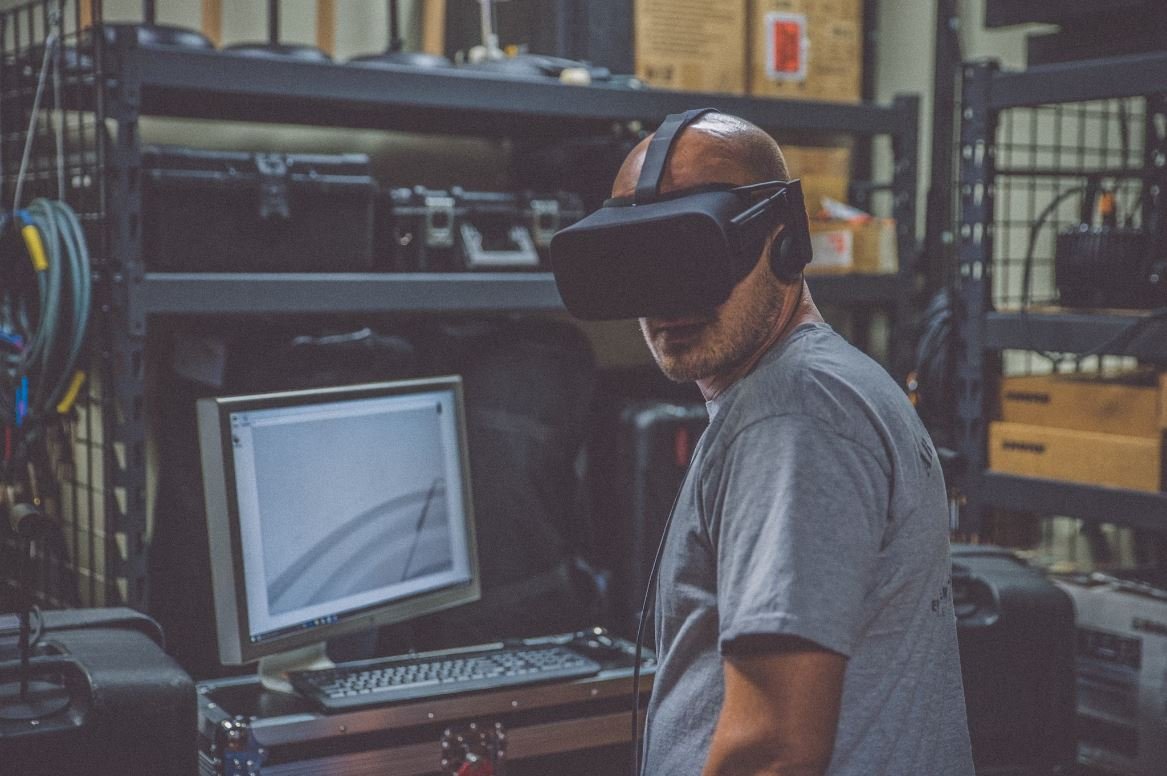Which Home Automation System Is Best
Home automation systems have revolutionized the way we control and manage our homes. With a wide range of options available in the market, it can be challenging to determine which system is best suited for your needs. In this article, we will compare and discuss some of the top home automation systems to help you make an informed decision.
Key Takeaways
- There are several home automation systems available.
- Consider compatibility with your existing devices.
- Compare pricing, functionality, and customer reviews.
- Choose a system that aligns with your specific requirements.
An effective home automation system can enhance your lifestyle and provide convenience.
1. SmartThings by Samsung
One of the leading home automation systems is SmartThings by Samsung. It offers a robust and versatile platform that allows users to control various devices using a centralized hub. With support for a wide range of devices and an intuitive user interface, SmartThings is a popular choice for homeowners.
SmartThings offers a range of compatible devices, including smart thermostats, security cameras, lighting solutions, and more. The system can be controlled using a smartphone app, voice commands, or through the centralized hub. With its integration with popular voice assistants like Alexa and Google Assistant, SmartThings provides seamless control and automation options.
| Pros | Cons |
|---|---|
|
|
2. Apple HomeKit
If you are an Apple user and prefer an ecosystem that seamlessly integrates with your existing Apple devices, Apple HomeKit is worth considering. HomeKit allows you to control your home automation devices using your iPhone, iPad, or Apple Watch.
One of the key advantages of Apple HomeKit is its emphasis on security and privacy. All HomeKit-enabled devices go through strict compatibility testing to ensure they meet Apple’s privacy standards. Additionally, HomeKit utilizes end-to-end encryption for secure communication between devices.
HomeKit offers a range of native and third-party devices that can be seamlessly controlled through Apple’s intuitive Home app.
| Pros | Cons |
|---|---|
|
|
3. Google Nest
Google Nest is a popular home automation system known for its smart thermostats, security cameras, and doorbells. Google Nest devices offer seamless integration with other Google products and services, providing a holistic home automation experience.
One of the standout features of Google Nest is its advanced learning capabilities, which help optimize energy usage and provide personalized insights. The system learns your habits and adjusts settings accordingly, contributing to energy efficiency and cost savings.
Google Nest devices can also be controlled using Google Assistant via voice commands, making it convenient for hands-free control.
| Pros | Cons |
|---|---|
|
|
Each home automation system has its strengths and weaknesses, so it’s important to assess your specific needs and preferences. Consider factors such as device compatibility, desired automation features, pricing, and user experience when making your decision.
Remember, the best home automation system for you may vary depending on your individual requirements, so take the time to research and compare different options before making a final choice.

Common Misconceptions
1. Integration Challenges
One common misconception surrounding home automation systems is the idea that all systems offer seamless integration with every smart device. However, not all systems are compatible with all devices, and some may require additional hardware or software to ensure proper connectivity.
- Not all smart devices are compatible with all home automation systems
- Additional hardware or software may be needed to connect certain devices
- Compatibility issues can hinder seamless integration
2. Cost as the Sole Indicator of Quality
A widely held misconception is that the most expensive home automation system is always the best choice. While it’s true that some high-end systems offer advanced features and functionality, there are also cost-effective options that provide reliable and comprehensive automation solutions.
- The price tag does not determine the quality of a home automation system
- Cost-effective options can offer reliable automation capabilities
- High-end systems may have advanced features but might not be necessary for everyone
3. Complexity and Technical Expertise Required
Another misconception is that home automation systems are overly complex and require extensive technical expertise to install and operate. Although some systems do involve a certain level of technical know-how, many modern systems provide user-friendly interfaces and straightforward installation processes.
- Not all home automation systems are complex and require technical expertise
- Modern systems often offer user-friendly interfaces
- Straightforward installation processes are available for many systems
4. Limited Compatibility with Other Systems
One prevalent misconception is that home automation systems are isolated and lack compatibility with other systems. However, many systems now support standard communication protocols, allowing them to integrate with various other devices and platforms.
- Many home automation systems support standard communication protocols
- Integration with various devices and platforms is possible
- Systems are becoming more versatile in terms of compatibility
5. Over-Reliance on Internet Connection
Some people believe that home automation systems heavily rely on an internet connection, making them useless if the connection goes down. While internet connectivity is important for certain functions, such as remote access or integration with voice assistants, many systems can still operate locally without an internet connection.
- Home automation systems can operate locally without internet connection
- Internet connection is primarily required for remote access and voice assistant integration
- Some functions may be limited if the internet is down, but basic automation capabilities remain intact

The Rise of Home Automation Systems
As technology advances, more and more homeowners are turning to home automation systems to enhance their living spaces. These systems offer a wide range of functions, from controlling lights and appliances to managing home security. With various options available in the market, it can be overwhelming to choose the best home automation system. To help you make an informed decision, we have compiled data and information about ten popular home automation systems in the following tables.
Smart Home Automation Systems
Smart home automation systems provide users with the ability to control various aspects of their homes through a centralized hub or mobile app. Here is a comparison of ten popular smart home automation systems:
Voice-Activated Assistants
Voice-activated assistants have gained popularity among homeowners for their convenience and ease of use. These assistants can control a wide range of devices and provide assistance with daily tasks. Here are the top voice-activated assistants available:
Home Security Systems
Home security is a top priority for homeowners, and modern home automation systems offer comprehensive security solutions. Here is a comparison of home security systems:
Energy Management Systems
Energy management systems help homeowners conserve energy and reduce utility costs. These systems provide insights into energy consumption and allow users to control appliances and settings remotely. Here is a comparison of energy management systems:
Lighting Control Systems
Lighting control systems offer homeowners the ability to create customized lighting scenes and manage energy usage. These systems often integrate with other home automation features. Here are ten lighting control systems to consider:
Climate Control Systems
Climate control systems automate temperature and humidity settings in homes, providing optimal comfort and energy efficiency. Here is a comparison of climate control systems:
Entertainment and Media Control Systems
Entertainment and media control systems centralize access to various audio and video devices, providing seamless connectivity and control. Here are ten popular entertainment and media control systems:
Automated Window Coverings
Automated window coverings offer convenience, privacy, and energy efficiency. These systems can be controlled remotely or automatically adjusted based on light levels. Here is a comparison of automated window coverings:
Smart Appliances
Smart appliances range from refrigerators to washing machines and offer advanced features for convenience and energy savings. Here are ten examples of smart appliances:
Integrated Home Automation Systems
Integrated home automation systems bring together various functions, including lighting, security, climate control, and media, into a unified platform for seamless control. Here is a comparison of integrated home automation systems:
Conclusion
Choosing the best home automation system depends on specific needs, preferences, and budget. With numerous options available, it is important to consider factors such as compatibility with existing devices and the range of features offered. The data and information presented in these tables can serve as a starting point in your research, helping you narrow down the choices and make a well-informed decision. Enhance your living space with the power of home automation systems and enjoy the convenience and comfort they bring to your everyday life.
Frequently Asked Questions
Which Home Automation System Is Best?
What factors should be considered when choosing a home automation system?
Some factors to consider when choosing a home automation system include compatibility with existing devices, ease of use, available features, scalability, and cost.
Are there different types of home automation systems available?
Yes, there are various types of home automation systems available, including systems that focus on lighting control, security, energy management, entertainment, and whole-home integration.
Which home automation system offers the most compatibility with other devices?
There isn’t a single home automation system that can be considered universally compatible with all devices. However, some popular choices with good compatibility include Apple HomeKit, Z-Wave, and Zigbee-based systems.
Can I control a home automation system with my smartphone?
Yes, most modern home automation systems allow remote control through smartphones and tablets. You can use dedicated apps provided by the manufacturer or use a compatible smart home platform like Apple HomeKit or Google Home.
Which home automation system offers the most advanced security features?
There are several home automation systems that offer advanced security features, including professional-grade systems like ADT Pulse, Ring Alarm, and Nest Secure. These systems often include features such as surveillance cameras, motion sensors, and remote monitoring.
Is it possible to integrate multiple home automation systems together?
Yes, it is possible to integrate multiple home automation systems together. This can be achieved through universal platforms like Samsung SmartThings or software solutions like OpenHAB, which allow the consolidation of various devices and systems into a single interface.
Which home automation system offers the best energy management features?
Several home automation systems offer energy management features, including systems like Nest Learning Thermostat, ecobee, and Control4. These systems can monitor and control energy usage, optimize temperature settings, and provide detailed energy consumption reports.
How do I determine the cost of a home automation system?
The cost of a home automation system depends on various factors, including the size of your home, the desired features, the number of devices to be automated, and whether you opt for professional installation or a DIY solution. It is recommended to get quotes from multiple providers to compare costs.
Which home automation system is the easiest to set up and use?
The ease of setup and use can vary depending on personal preferences and technical expertise. However, systems like Google Nest, Amazon Echo/Alexa, and Samsung SmartThings are known for their user-friendly setup processes and intuitive interfaces.
Are there any home automation systems that offer voice control?
Yes, several home automation systems offer voice control capabilities through integration with virtual assistants like Amazon Alexa, Google Assistant, and Apple Siri. This allows you to control your smart devices by simply speaking commands.





